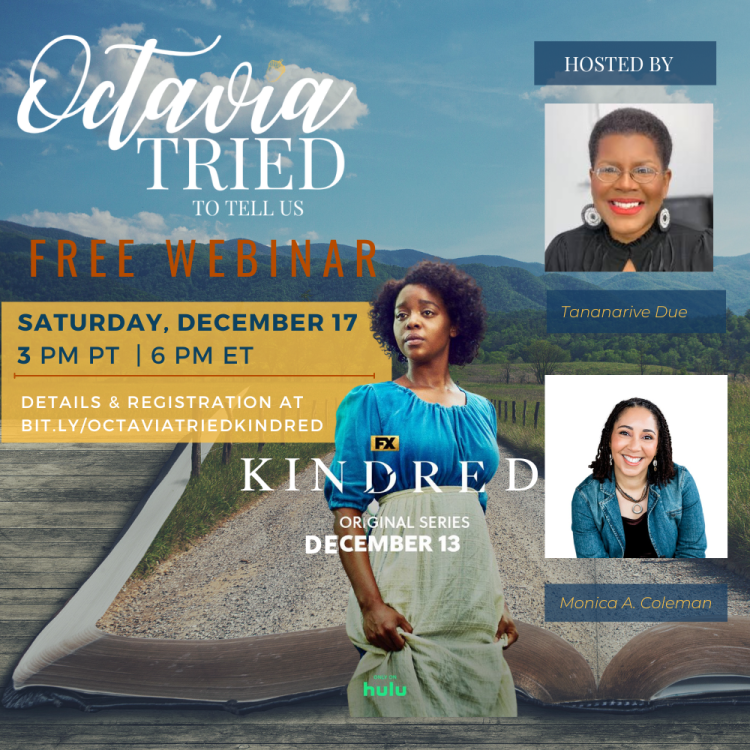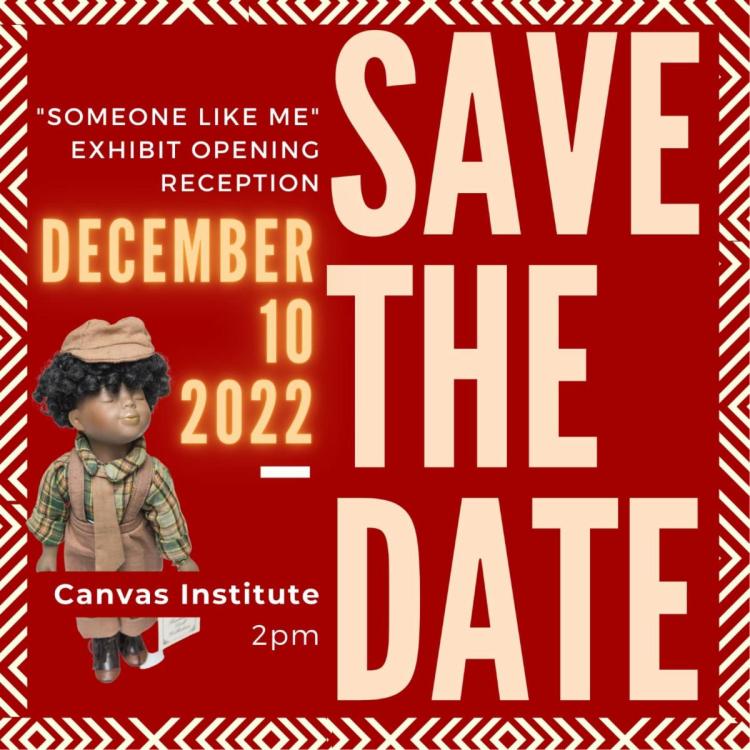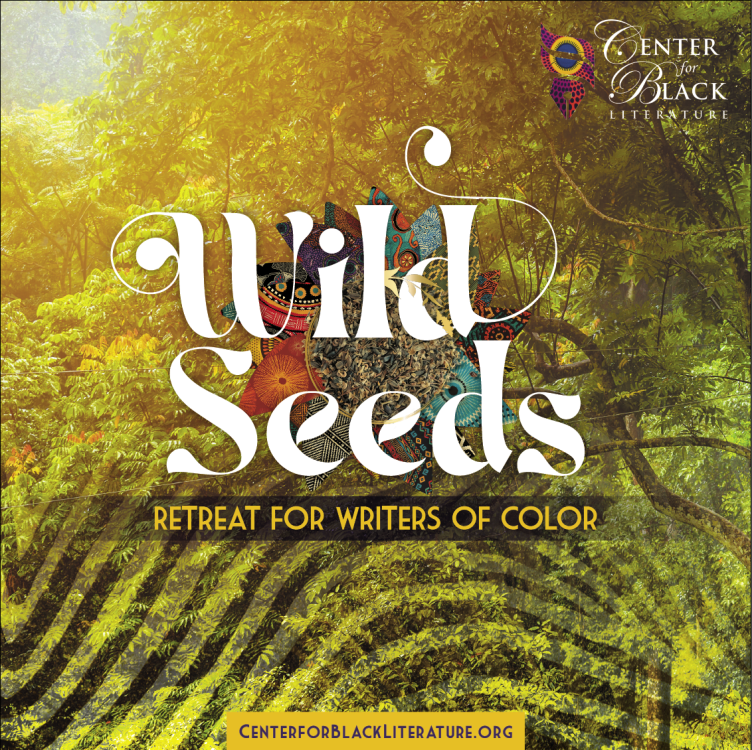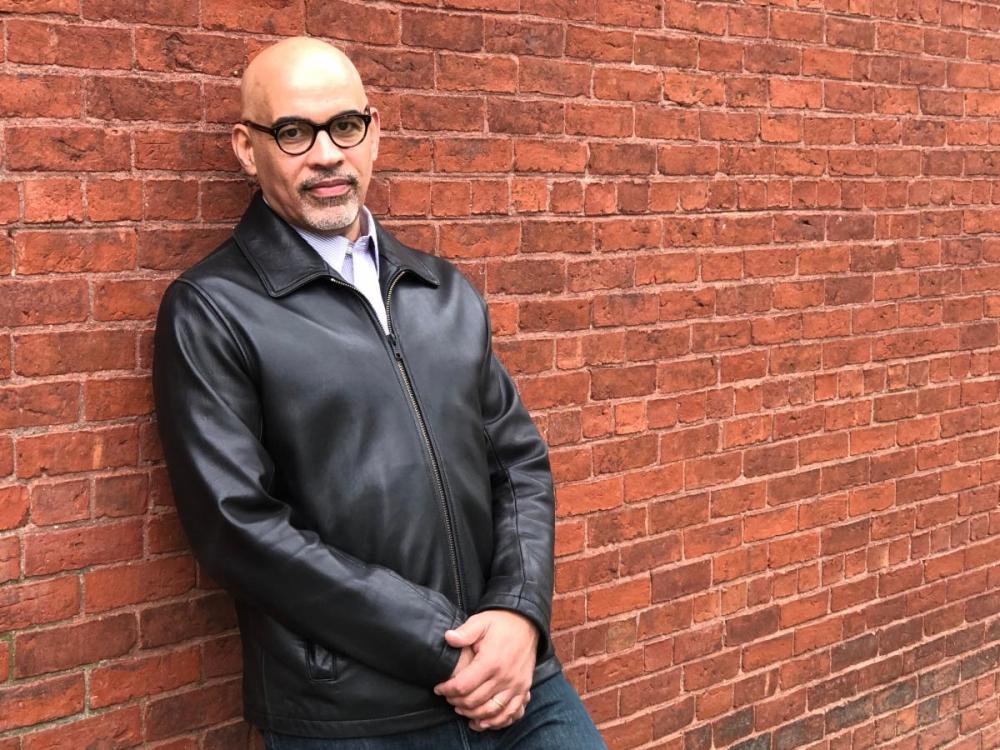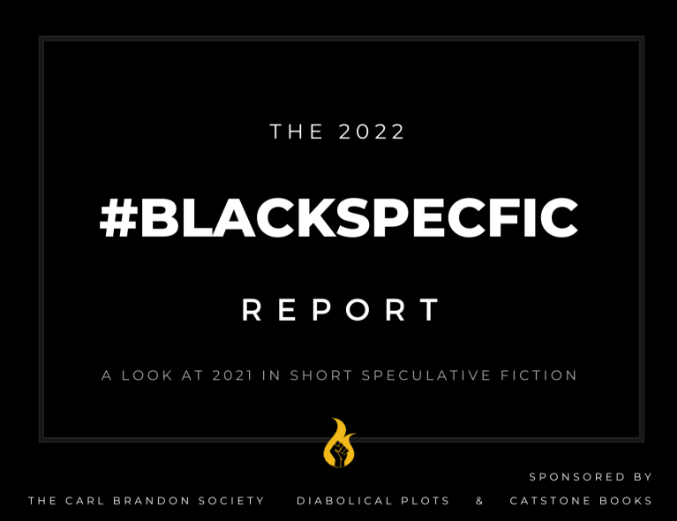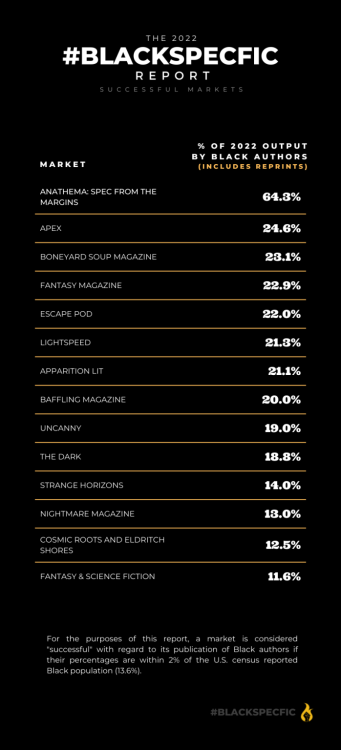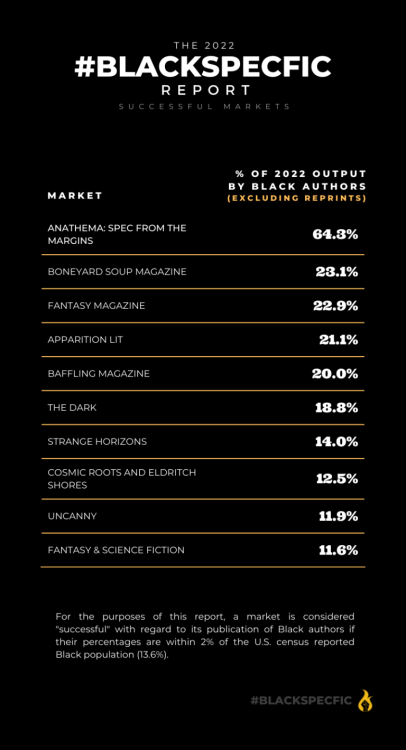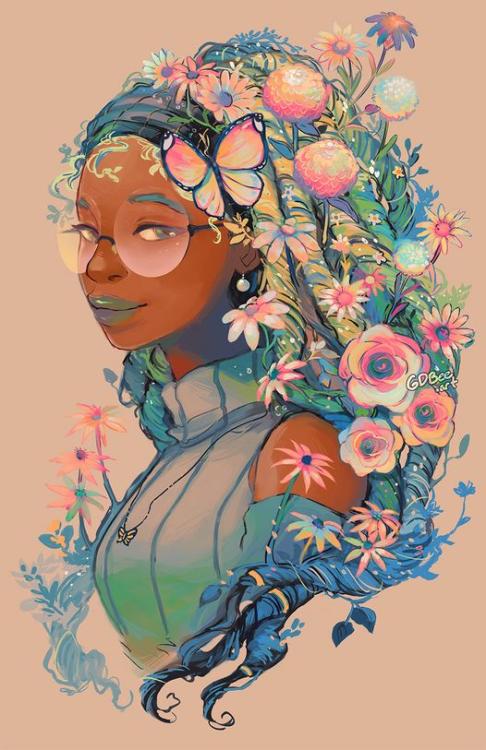-
Posts
2,410 -
Joined
-
Last visited
-
Days Won
91
Content Type
Profiles
Forums
Blogs
Events
Everything posted by richardmurray
-
OCTAVIA TRIED TO TELL US is hosting a PopUp because Octavia Butler's KINDRED is coming to the screen! Every episode drops on Hulu on Tuesday, December 13 and we'll be talking about it on Saturday December 17. We'd love for you to join us! Click below for more details and to register.
Kindred Goes Hollywood Pop Up
Saturday, December 17, 2022
3 pm PT/ 6 pm ET
-
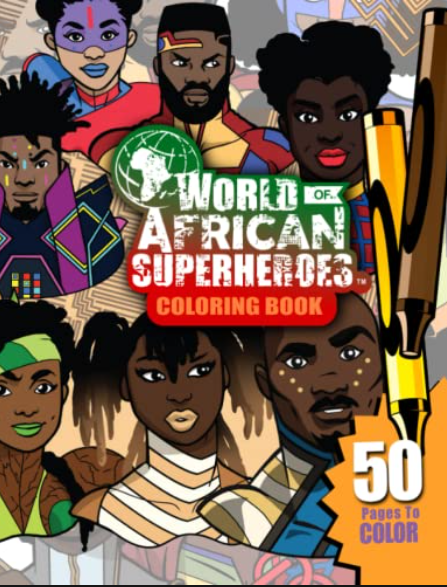
World of African Superheroes: Coloring Book for All Ages Relaxing Inspiring Cultural Empowering Creative Coloring Book: Black Superhero Coloring Book 01 Paperback – Large Print, November 5, 2022
by Mr. Akinseye Brown (Author)$9.99 USA dollars
https://www.am*zon.com/World-African-Superheroes-Inspiring-Empowering/dp/B0BLM3LLD8?asin=B0BLM3LLD8&revisionId=&format=4&depth=1
-
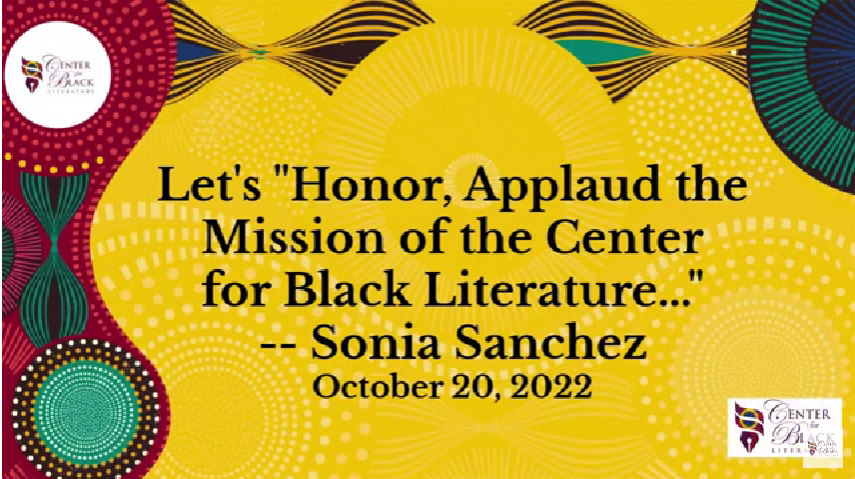
The CBL Staff Wishes You a
Joyous Holiday Season!
We're reflecting on 2022 and giving thanks for a highly productive year. Most outstanding is the success of our 20th Anniversary Jubilee Celebration on October 20. It is our honor to share a bit of the magic from that night with those who weren’t able to attend.
Please enjoy these inspirational
welcoming remarks from our friend
Sonia Sanchez
As 2022 closes, we know that many of you are working on your year-end giving plans to nonprofit organizations. Did you know that CBL relies on donations from the community to thrive? Our year-round literary programs and special events need your financial support.
We hope we can count on you to help make 2023 our best year ever! If so, please donate what you can by Saturday, December 31, 2022.
Donate HERE < https://www.rfcuny.org/eventpayment/events/index?college=medgar > (via Research Foundation CUNY aka RFCUNY).
Have a wonderful holiday season. Enjoy your end-of-year celebrations!
~ Team CBL
The Canvas Institute invites the community to the opening reception of the art exhibition titled Someone Like Me, featuring the Beverly Moorehead Doll Collection. This event will be hosted by Dr. Brenda M. Greene, executive director of the Center for Black Literature at Medgar Evers College, and the exhibit's curation team, Sadé Dinkins and Teresa Caliari.
The exhibit takes the viewer on a symbolic journey through a life-sized doll house. Composed of different themed "rooms" and a wide variety of dolls, this exhibit has something for all ages, backgrounds, and identities.
Someone Like Me Exhibit
Opening Reception
Saturday, December 10, 2022
2:00 pm
at Canvas Institute
150 Victory Boulevard
Staten Island, NY
To RSVP for the reception, contact
Sadé Dinkins at shadink@gmail.com
THE WINTER 2023 RETREAT
AT-A-GLANCE
Novelist Kia Corthorn and poet Willie Perdomo are the faculty members for the Winter 2023 four-day retreat at Medgar Evers College (Brooklyn, NY).
The dates are February 23 - 26, 2023. Aspiring writers (21 and over) are encouraged to apply.
The application is downloadable < https://centerforblackliterature.org/wp-content/uploads/2022/12/WSRWC2023_4WEB_Application_Winter.pdf > (online version coming soon).
We Are Thrilled to Welcome
WILLIE PERDOMO
-- New York State Poet Laureate --
as a Returning Faculty Member
for the Wild Seeds Retreat
for Writers of Color (Winter 2023)
ABOUT THE RETREAT
The Wild Seeds Retreat for Writers of Color provides a writing community where established and emerging writers can focus on the craft of writing and create cross-cultural conversations around the literature created by writers of the African diaspora. Writing fellows have an opportunity to draw upon their experiences as writers in a racialized society; to become knowledgeable about the issues facing other writers of color; and to study with a professional in the genres of fiction, memoir, and poetry.
ABOUT THE FACULTY MEMBER
Willie Perdomo is the author of Smoking Lovely: The Remix (Haymarket Books, 2021), The Crazy Bunch (Penguin Random House, 2019), The Essential Hits of Shorty Bon Bon (Penguin Random House, 2014), and Where a Nickel Costs of Dime (Norton, 1996). Winner of the Foundation for Contemporary Arts Cy Twombly Award for Poetry, the New York City Book Award in Poetry, and the PEN Open Book Award, Perdomo was also a finalist for the National Book Critics Circle Award, and the Poetry Society of America Norma Farber First Book Award.
He is co-editor of the anthology, Latínext, and his work has appeared in The New York Times Magazine, Poetry, Washington Post, The Best AmericanPoetry 2019, and African Voices. Perdomo is currently a Lucas Arts Literary Fellow, a core faculty member at VONA/Voices of our Nation Writing Workshop, and teaches at Phillips Exeter Academy. | Source: www.willieperdomo.com
-

We Wish You a Joyous
Holiday Season!
We're continuing our reflection of 2022 and giving thanks for a highly productive year. Most outstanding is the success of our 20th Anniversary Jubilee Celebration in October 20.
In case you missed it, we're sharing a bit of the magic from that night.
Please enjoy these inspirational
words of support from our friend
Dr. Cornel West
-
-
From Karl Blackkkstone < https://www.fanfiction.net/u/90042/BLAKKSTONE?fbclid=IwAR3ZvFihAEO9gyQ32EGaUUeLUzJJLcDcpjyhhbOhZizmtheE8-G5WRz_7yU >
Greetings, all.
Here is a recent paper I wrote during my university course. It might be relevant for some here.
https://1drv.ms/b/s!ArspJ5yABJDqg7QFLvbHAk04QhXqOg?e=pl9K5K
My comment:
I read it from top to bottom.
I define Afrofuturism as stories concerning the future of Black folk, whether they be in the USA or not, or of African descent or not. I define Black as a label to humans in a phenotypical range.
Two points I think warrant an open discussion. I put them in brackets.
<In the 1990s, when Mark Dery coined the term ‘’afrofuturism’’, there were very few Black science-fiction writers>
<In the 2020s, there is more diversity in stories and storytelling. As ‘’afrofuturism’’ is getting more well know, several Black storytellers –in the United States, the Caribbean and in Africa –are getting their voices heard. The movement is getting stronger.>What determines if someone is a writer? I have always argued that a writer is someone who writes. The assessment to technique in writing doesn't dictate if one is a writer, in my view.
In the year 1990, how many Black high school or college students wrote a story, any length, that involved science fiction. You wrote, there were very few Black science fiction writers. I argue, the quantity of writers wasn't small, the opportunity to be published was small. To have reprints of their work for sale was small. But that does not mean the quantity of writers was small. At least in my view.
And if my prior words have truth, than the issue isn't the multiversity in stories or storytelling, as much as, the opportunity to make profit from writing has expanded in modernity.
-
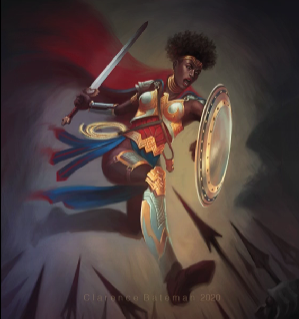
Title: Artwork process for ‘Nubia wonder woman’
Video Process
Artist: Clarence Bateman
https://www.deviantart.com/clarencebatemanart/art/Artwork-process-for-Nubia-Wonder-Woman-910623152Prior Post
https://aalbc.com/tc/profile/6477-richardmurray/?status=2092&type=status
Post with Clarence Bateman
-
Ryder of Ccayco
The poem is entitled: One in a couple
color version
https://www.deviantart.com/hddeviant/art/Ryder-of-Ccayco-Color-939442773
Black and white version
https://www.deviantart.com/hddeviant/art/Ryder-of-Ccayco-BW-939443464
-
Kahuere of Ampraeh - calligraphy plus poetry
The poem is entitled: Xicotencatl the younger's last dream
Audiobook
https://www.kobo.com/us/en/audiobook/xicotencatl-the-younger-s-last-dream
Book cover color version
https://www.deviantart.com/hddeviant/art/Kahuere-of-Ampraeh-Color-939576715
Book cover black and white version
https://www.deviantart.com/hddeviant/art/Kahuere-of-Ampraeh-BW-939431719-

Tumblr video
https://richardmurrayhumblr.tumblr.com/post/703021549408681984/kahuere-of-ampraeh-calligraphy-plus-poetry-the
tumblr audio
https://richardmurrayhumblr.tumblr.com/post/703021635997958144/kahuere-of-ampraeh-calligraphy-plus-poetry-the
youtube video
https://youtu.be/xq6BMHi7Ns0
tiktok video
https://www.tiktok.com/@richardmurraytiktok/video/7174552298524462382
-
-
Suriel of Sylessae- calligraphy plus poetry.
The poem is entitled: The Stone of Suriel
Audiobook
https://www.kobo.com/us/en/audiobook/the-stone-of-suriel
Book cover color version
https://www.deviantart.com/hddeviant/art/Suriel-of-Sylessae-Color-939311270
Book cover black and white version
https://www.deviantart.com/hddeviant/art/Suriel-of-Sylessae-BW-939310620
clip to my work being showcased
entire showcase
I will ask suriel, what will be the most favorite color in the next 100 years
suriel entries
https://www.deviantart.com/tag/SurielDTIYS
winners
https://www.deviantart.com/sylessae/journal/Suriel-DTIYS-Winners-939667181-

Tumblr video
https://richardmurrayhumblr.tumblr.com/post/703018497130790912/suriel-of-sylessae-calligraphy-plus-poetry-i-do
Tumblr Audio
https://richardmurrayhumblr.tumblr.com/post/703019853220659200/suriel-of-sylessae-calligraphy-plus-poetry-the
Youtube Video
https://youtu.be/SbM0nth4VT4
tiktok
https://www.tiktok.com/@richardmurraytiktok/video/7174551392781176110
-
-
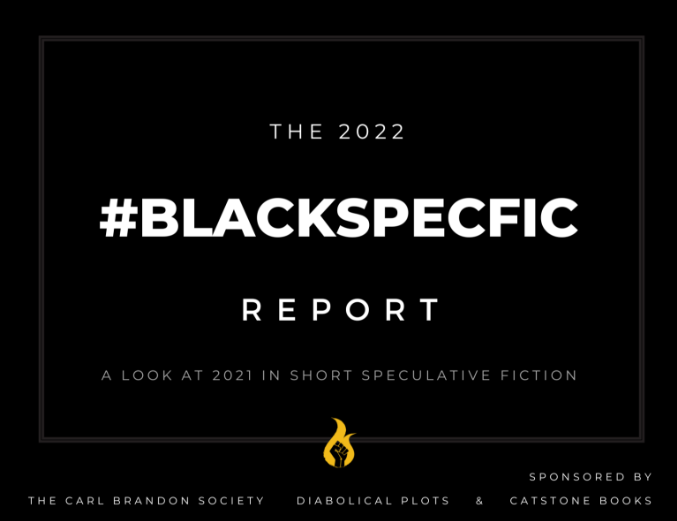
Introduction
The 2022 #BlackSpecFic Report is an examination of the state of representation of Black authors within the speculative short fiction market published in 2021. The original reports of 2015-2017 were composed by Cecily Kane and Ethan Robinsons, and were published by Fireside Magazine. The bottom line of the 2015 report—that Black authors represented less than 2% of the field—is considered one of the catalysts for the establishment of FIYAH Literary Magazine of Black Speculative Fiction. This is the first #BlackSpecFic Report since 2017. Previous reports can be found here. [ https://firesidefiction.com/blackspecfic ]
The 2022 report began with the same list of 63 markets examined in the 2015 study, of which we found only 26 to still be operating a full publishing schedule as of 2021. Of the 37 markets that closed sometime in the last 5-7 years, only 13 of them published at least one Black author in the most recent (2017) study.
To both compensate for the gap in coverage and to achieve a more thorough view of the field, we solicited a market list from Diabolical Plots in their capacity as the operators of The Submission Grinder, an online submissions tool for authors to locate, vet, and log/track submissions to markets publishing in various genres. We were suppled a list of 131 markets meeting the following criteria:
- Operational as of 2021
- Publishing in science fiction, fantasy, and/or horror
- Markets offering paid publication (at least .01/word)
- Non-inclusive of contests
After filtering for anthologies or one-off/non-traditional offerings (such as photography/art publishers), markets on hiatus (as opposed to permanently closed), or markets who for various reasons were publishing intermittent or incomplete schedules, we landed at 65 markets valid for study, comparable to the original iterations.
The SFFH zine market—at least the population being critiqued here—remains principally U.S.-based. For that reason, Omenana and Truancy have been removed from the data set. For the same reason and for the purposes of this report, a market is considered “successful” with regard to its publication of Black authors if their percentages are within 2% of the U.S. census reported Black population (13.6%). [ https://www.census.gov/quickfacts/fact/table/US/PST045221 ]
Our findings are below. This report was composed by L. D. Lewis and Nelson Rolon with sponsor support from the Carl Brandon Society, Diabolical Plots, and CatStone Books.
Terminology
This BlackSpecFic Report uses FIYAH’s definition of “Black” regarding people and descendants of the African Diaspora as they may refer to themselves on completion of a United States census survey. This definition is globally inclusive (Black anywhere in the world) and also applies to mixed/biracial and Afro-appended people regardless of gender identity or orientation.
Short fiction – works shorter than novella length or 17,000 words
Speculative Fiction – works of fantasy, science-fiction, horror, magical realism, and their associated subgenres
Venue/Market – “Venue” and “Market” are used interchangeably to refer to the publishing entity to which the works are sold and by whom the works are hosted or published.
Operational – A venue or market is considered operational if its website is still functioning and accessible, a notice or statement of closure/hiatus does not appear on the website or the market’s social media, and submissions have not been closed for 6 months or longer.
Successful – For the purposes of this report, a market is considered “successful” with regard to its publication of Black authors if their percentages are within 2% of the U.S. census reported Black population (13.6%). [ https://www.census.gov/quickfacts/fact/table/US/PST045221 ]
Short Version
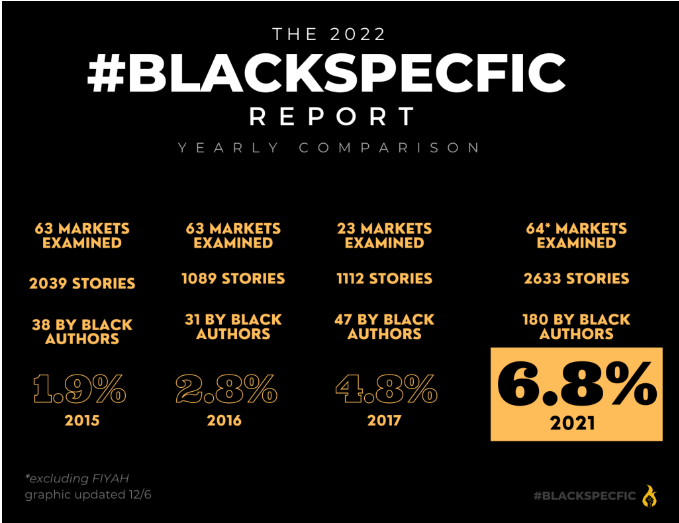
Of 2651 pieces published by 65 venues in 2021, 198 or 7.6% were written by Black authors. With FIYAH excluded, the percentage is 6.8%. The 6.8% represents a change of +4.9% from the 2015 study. For purposes of discussion, we will be excluding FIYAH’s input, as it is an exclusively Black publication and thus skews the dataset. FIYAH published 18 works of prose in 2021, the highest of any surveyed market with the exception of Lightspeed Magazine, who published 20.
12/6 6:10PM UPDATE: Following a discrepancy in the reporting of the numbers for Beneath Ceaseless Skies, original numbers to this study have been updated to reflect a 0.1% change in the overall percentage, and a change of +3.9% for BCS. Zooscape also reported 1 story published by a Black author. Data has been updated to reflect a +3% change for Zooscape.
Highlights
- Of the 23 pro and semipro markets examined in all 2015-2017 studies, 11 showed an increase in publishing works by Black authors relative to their respective outputs.
- While Black editors of short speculative fiction continue to represent a small portion of the field, nearly all of the surveyed markets who host a Black owner, editor, or guest editor made the “Most Successful (without reprints)” list. And those four publications (Anathema, Fantasy Magazine, Fantasy & Science Fiction, Uncanny Magazine) are responsible for 25.4% of the entire field’s Black-authored works.
The Impact of Reprints and Special Issues
Two publications, Escape Pod and Lightspeed Magazine saw double-digit percentage increases over their 2017 performances (18% and 14.8% respectively). Escape Pod’s Black Future Month special limited demographic issue is responsible for 4 of their 11 Black-authored works, and another 2 were reprints (two of the Black Future Month acquisitions were reprints). 12 of Lightspeed’s 20 Black-authored works from last year were also reprints. Field-wide, 49 of the 179 (27.4%) works by Black authors were reprints.
Reprints offer a number of benefits, serving to expose stories to new audiences and helping increase the longevity of and the number of avenues available to access a given story. They also pay nowhere near a rate comparable to that of acquisitions of original works. A pro-paying market rate as set by SFWA is .08/word, whereas rights to reprints are bought at around .01/word. And a reliance on reprints to increase representation of any particular demographic betrays what has historically been true oftentimes regarding Black storytelling: that publishers and editors continue to experience a discomfort or disconnect with Black storytelling.
There is considerably less labor involved in securing a reprint. No additional editing is done at the reprint stage. Another editor elsewhere saw the story’s value, engaged with it, helped polish it, and believed in it enough to back the story financially. The reprint is an acknowledgment of the original editor’s labor and vision. The result is fewer original stories by Black authors and a smaller pool of known Black authors to our reading communities.
Special limited-demographic issues, while inarguably great as collections of curated highlights from marginalized groups, can still present as an “otherization” of those groups if they aren’t regularly part of a publication’s output. The goal with any of these studies is to see more organic inclusion.
We compare the standings of “successful” markets with and without their reprint output below.
Data
Using the Interactive AirtableThis year’s study data is stored in Airtable databases which allow the viewer to filter and toggle the information they are interested in seeing without impacting the overall organization of the raw data for all viewers.
Adjust your preferred filters along the top. At the bottom of each column with numeric entries, you can adjust for the totals you’d like to see (Sum, Median, Avg, etc). Navigate between the following tables on the left-hand side:
2022 BlackSpecFic Report – Raw Data
- “Active Only” view – provides numbers based on full set of 65 examined publications, including FIYAH
- “Excluding FIYAH” view – provides numbers as detailed in the report, with FIYAH’s content filtered out
- “Median Filter (>/<)” view – median percentages of Black writers at each magazine… unadjusted totals (including reprints) found a median of 3.5% Black-authored stories. Reprint filtered totals had a median percentage of 1.6%. The “Median Filter >” filter displays markets that performed greater than median percentages respectively, regardless of their reprint volume. The “Median Filter >” displays markets that performed below EITHER median.
- “Reprints Filter” view – provides numbers (FIYAH’s content filtered out) adjusted to exclude reprints of Black authored works for each publication
2015-2021 Comparison — % Stories by Black authors
This table displays the performance of the 23 markets examined in all previous iterations of the Report and their +/- percentage change as of the 2021 (current) report. Market closures which occurred between 2017-2021 are noted. Markets which saw a positive (+) shift are marked in green, and negative (-) marked in red.
It is worth noting in this table that fluctuations in the publications of any demographic are expected.
The BSF Writer Survey
In the past, FIYAH has invited Black SFFH writers to submit information about their practices and insights on submission to SFFH short fiction markets. This latest iteration of course kept a focus on the 2021 calendar year, as well as the impact of and experience with special offerings made during the summer of 2020. The responses we received allowed us to:
- Quantify the existence of Black speculative fiction writers seeking publication. This latest iteration of the survey saw 98 respondents.
- Provide submission context to existing publication data (like the #BlackSpecFic report).
- Expose the impact of “current events” or major sociopolitical and environmental occurrences as relates to lived Black experiences on submission volume. In a reversal from the 2016-2018 BSF Reports which saw respondents submitting in increasing volumes, the majority of the 2021 respondents reported submitting less often than their usual. When provided the opportunity to volunteer anecdotes about their submissions and rejections, a third of respondents reported taking more time to rest or reported experiencing a de-prioritization or demotivation toward writing/creative endeavors for a protracted period in 2020.
2021 Response Count Total Individual Stories Submitted 245 Total Submissions 266 Total Sales 63 Rejections 182 Identify as: African American 4 Black 44 Caribbean/Afro-Caribbean 9 Jamaican/Jamaican-American 2 Black American 18 Black British 8 Mixed/bi-racial/multi-racial 5 West Indian 5 Nigerian 2 Respondents Published Status: Previously published 80 Never before published 18 Self-Identifies in Submissions: If Market Requests/Special Issues 38 Always 54 No, awkward 0 No, inappropriate 0 NBA (never been asked) 6 Submission Frequency Relative to Previous Years Submitted more in the last year than usual 24 Submitted less 41 Submitted about the same 15 First Year on submission 18 Summer of 2020: Awareness/Pursuit of Opportunities Aware, Pursued 41 Aware, Declined to Pursue 28 Unaware 29 Sales Pay Rate (for those who made sales) >$.08 USD/word 29 >$.01 USD/word, <$.08 USD/word 25 <$50USD (no per-word rate) 9 Methods of Finding Markets Word of Mouth 24 The Submission Grinder 32 Other (Social Media) 42 Duotrope 10 Author Blogs 2 Google/Search Engines 18 Conferences/Conventions 4 Ralan 4 Black Lives Matter and the Summer of 2020
In June of 2022, publishing professionals took to social media to show their solidarity with Black creators and the Black Lives Matter movement taking off internationally following the deaths of Breonna Taylor and George Floyd. The solidarity made itself known as hashtags, blacked-out profile pictures, and—perhaps more helpfully— offers of special consideration for Black authors seeking representation, publication, mentorship, access to professional networking tools, project funding, and query assistance.
Acknowledging the shared trauma Black creators were experiencing at the time that may have prevented them from noticing or following up on opportunities, FIYAH tweeted [ https://twitter.com/fiyahlitmag/status/1270085190577250306 ] to create a centralized list, aggregating publishing offers in one place to be referenced by those interested at a more convenient time.
Our BSF Report asked Black writers if they were aware of or pursued any of the opportunities such as those provided by the professionals who responded to our call.
41 respondents were aware of special offers made and pursued selected opportunities.
The most consistently redeemed opportunity was the waived membership/renewal fees for eligible Black authors at either SFWA or SCBWI. 2 respondents reported receiving offers of literary representation. 18 respondents reported having an especially negative (not neutral) experience, either being ghosted (receiving no response to inquiries or submissions) by multiple agents or editors who put out specific calls to Black writers during the months of tumult, or receiving form rejections for special open submission windows.
28 respondents were aware of offers but did not pursue them
Half (19) of these respondents cited a generalized fatigue, trauma response, or cynicism regarding the honesty of the offers being made as reasons they declined to pursue, or they used the time to do more drafting than submitting.
29 respondents were not aware of offers
Discoverability of offers is typically highest on social media. Respondents who are not active in these spaces may have missed special calls if the offering professionals did not add them to newsletters, blogs, or other spaces where they might reach a broader audience.
Conclusions
A LOOK BACK
It is essential that when we determine we care about an issue, we follow and revisit its progress in depth. More than desiring the lack of representation as a talking point, we have to be invested in its resolution. That is the intent behind continuing the #BlacSpecFic Reports: not to villainize publications (though some will see it that way), but to offer both accountability and solutions for what the short SFF community has indicated is important to us to solve.
Studies from previous years have all included some sort of ask, [ https://www.fiyahlitmag.com/bsfreport/bsf-report-going-forward/ ] or a list of recommended actions publications could undertake in order to attract or better engage with the works of Black writers. By far, the action most successful since the 2015 study has been the engagement and development of Black editors. It’s been most effective in removing barriers of connection or comprehension often previously cited as reasons for rejection. Solicitations directly from Black authors continue to help with the numbers, but it’s important that publications don’t hinge the entirety of their representation on special issues. Organic inclusion remains the goal.
In our original BSF Report, we also suggested more SFWA engagement on the matter of representation. Their offering of suspended membership fees ended up being the most often redeemed opportunity presented as part of publishing’s BLM response.
We have not tracked a pronounced change in inclusive diversity statements/submission guidelines as those are highly subjective and may be too granular to establish a coherent metric. We have, however noted that the Venn diagram of publications examined in previous study years who (1) had a track record of publishing zero Black writers, (2) were highly defensive of their position in doing so/made no marked improvement of effort in adjusting, and (3) shuttered before the commencement of the 2022 study, would reveal quite the overlap.
We look forward to monitoring the field’s further progress and composing a subsequent report in 2025.
ARTICLE URL
-
Guess whose coming to dinner / guess who/you people... It took me years to stomach watching guess whose coming to dinner and while I loved Bernie Mac, guess who was... I couldn't get through it. ... The problem with phenotypical or other racial mixing in the usa is the legacy of it. These films place the action in the providence of non acceptance to individuals and I don't see that as the source of the problem. the problem is, communities have in the usa legacies of vendetta/revenge/blood between them and time doesn't wither all those wounds.

-
Title: Nature Locs
Artist: GDbee < https://gdbee.store/ >
Prior post
https://aalbc.com/tc/profile/6477-richardmurray/?status=2171&type=status
GDBee Post
https://aalbc.com/tc/search/?&q=gdbee&type=core_statuses_status&quick=1&author=richardmurray&search_and_or=or&sortby=newest -
Title: Inspired by the pillars of creation
Artist: GDbee < https://gdbee.store/ >
Prior post
https://aalbc.com/tc/profile/6477-richardmurray/?status=2166&type=status
GDBee Post
https://aalbc.com/tc/search/?&q=gdbee&type=core_statuses_status&quick=1&author=richardmurray&search_and_or=or&sortby=newest


